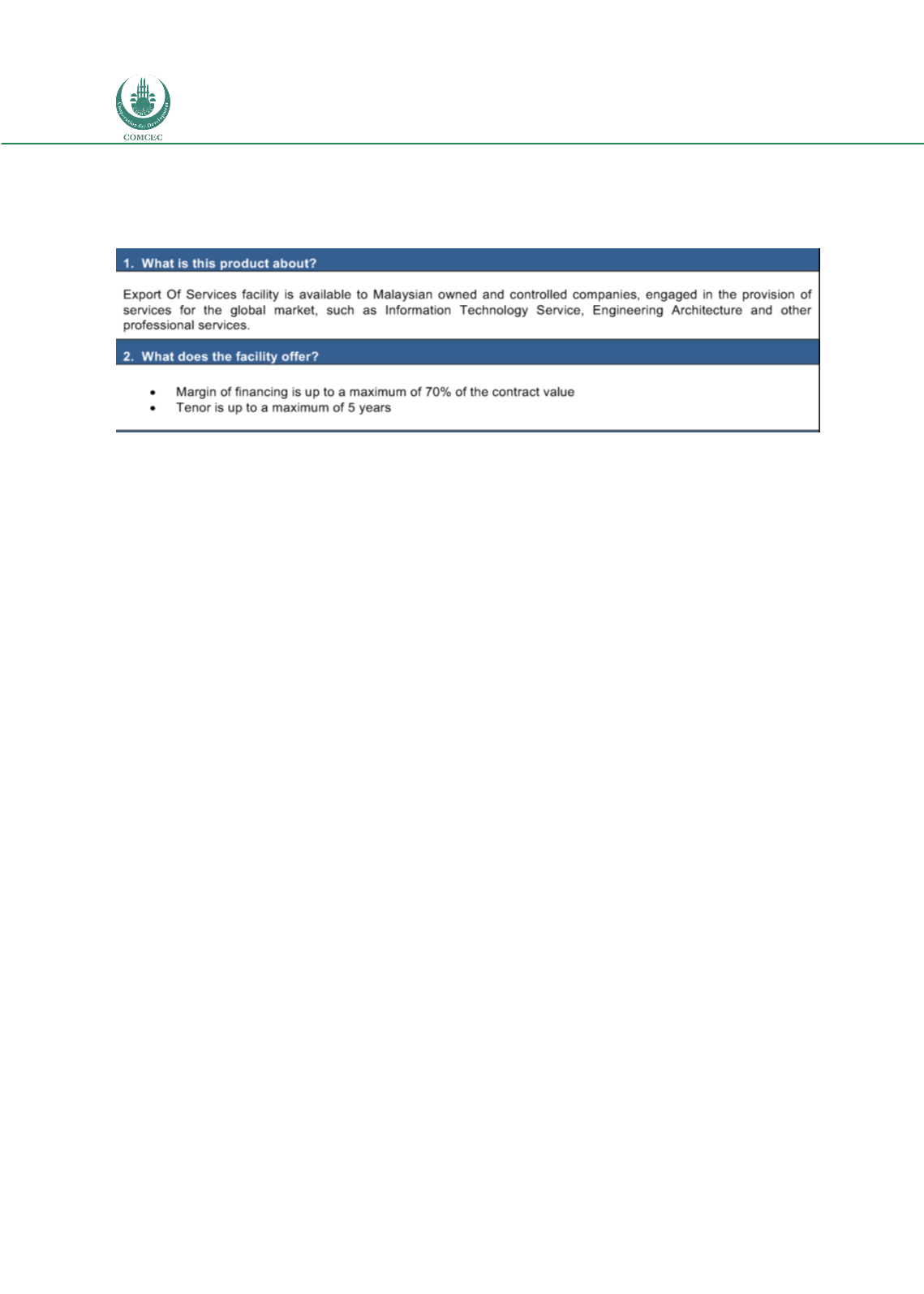

Improving the SMEs Access to Trade Finance
DRAFT
in the OIC Member States
76
Perhaps equally importantly over the longer term, ECAs and IFIs can be the source of or the
drivers behind, important innovations in the financing of international commercial activity.
Table 9: Services Export Finance
Source: Export-Import Bank of Malaysia Berhad, Product Disclosure Sheet, 2013
While private sector providers of trade finance wrestle with the demand for service sector
trade finance, and the absence of collateral in support of such financing, the Malaysian ECA is
offering attractive solutions in support of high-value and typically high margin professional
services exports. Such initiatives and the innovative products and structures that support
them, can assist exporters – and nations – to move successfully upward along the global value
chain, and in so doing, support economic development and growth.
The breadth of the mandates and ranges of activity among OIC Member institutions also varies
significantly, with certain jurisdictions defining a relatively focused and narrow scope of
activity for their institutions, and others taking a rather more holistic approach, placing trade
financing and risk mitigation in the broader context of international trade, market
development and pursuit of new opportunities.
While some institutions and jurisdictions focus primarily on solutions and services related to
payment, financing and risk mitigation, others look more broadly at the need for and
opportunity in developing commercial competencies, and in acquiring knowledge and skills
important to success in international markets.
The Qatar Export Development Agency takes a broad view of its mandate, having developed an
SME Toolkit in collaboration with the IFC and with IBM, which includes a variety of resources
addressing key issues faced by SMEs and entrepreneurs, from fundamentals of management to
country reports to sector-level analyses and beyond. The Toolkit also appears to identify
opportunities for Qatari SMEs to engage in international and global supply chains.

















